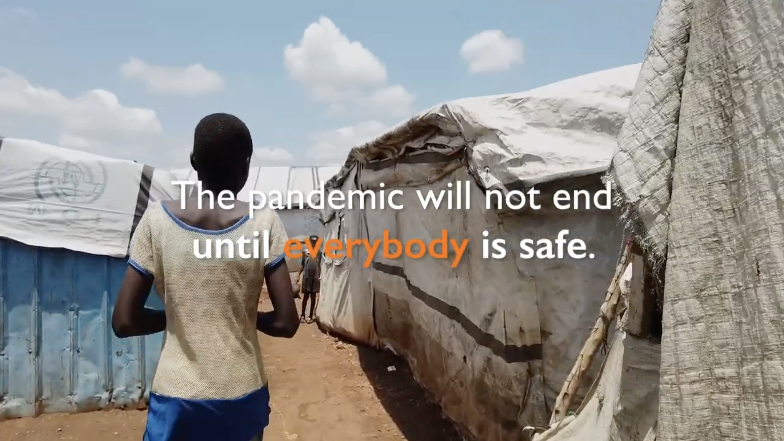The COVID-19 pandemic was an unprecedented global issue that altered many spheres of human life. According to Chaturvedi et al. (2021), the onset of the pandemic posed severe implications for social norms, changing everyday interactions and redefining various aspects of community wellness. To begin with, people developed different perspectives of life in an attempt to unravel the origins of the virus, leading to cultural biases and prejudices. The quarantine period was particularly tough for individuals due to the social disruption that tore the social fabric of communities, introducing new and unwelcome lifestyles. Hoppner (2021) reveals that relationships were significantly affected, redefining closeness and social bonds. The old, disadvantaged individuals and immigrant communities suffered more than other community members, showing the deeply entrenched societal inequalities.
Education and work are two essential aspects of social connections that have bound people together over the years. The pandemic introduced the concept of isolation, calling on communities to develop new techniques of survival. The emergence of work-from-home routines lowered motivation that affected individual workers, impacting their contributions to society’s well-being (Robdell & the Fortune Staff, 2021). As students were forced to study online, school experiences were affected, lowering students’ morale and ultimately minimizing their social involvement. In addition, people were forced to alter their feeding systems to accommodate the new trends and resort to social media for connections with family and friends. People became more religious, minimizing social segregation on the basis of faith. Essentially, the physical, psychological, sociological, and spiritual dimensions experienced dramatic changes.
Cultural Biases

Cultural and ethnic differences have been a cause for concern in society. The pandemic widened the cultural differences due to prejudices and biases fuelled by misunderstandings about the causes of the virus. According to Dernegi (2020), at least 43% of the population believed that the virus resulted from Chinese eating habits, as shown in fig. 1 above. These stereotypes formed biases that led to the segregation of Chinese nationals in various settings. Ethnic divisions are connected to several social ills such as isolation and resource deprivation including restrictions in regard to community involvement, a factor that results in strained relationships.
Changed Social Norms
Every society is bound together by social values and norms that define the interrelationships among community members. For instance, close friends and relatives were always allowed to embrace each other as a sign of love and unity. This norm has been passed on from generation to generation, making it hard to accommodate immediate changes brought about by the COVID-19 pandemic. As shown in fig. 2 below, social interactions through physical greetings were prohibited, forcing people to develop new ways of greeting close associates (Hoppner, 2021). In essence, changing from the age-old norms to new social interactions was challenging and unwelcome.

Twisted Views on Aging

The older population has been a significant part of society, offering advice and shaping social-cultural interactions. They have always been valued and regarded as essential members of the community. However, the pandemic negatively impacted the lives of senior citizens in an unprecedented way. For instance, quarantines and social separations left older adults with no one to care for them. As shown by Hoppner (2021), in fig. 3 above, most senior citizens had to undertake most tasks alone, leading to loneliness. Consequently, aging was viewed as a disadvantage, and many older adults who contracted the virus had no hope of recovering.
Work from Home and Social Disconnection

The workplace has been viewed as a revenue-generation and relationship-building setting. Chaturvedi et al. (2021) argue that physical connection plays a vital role in enhancing mental health. Fig. 4 above shows how work from home operations disrupted social relationships at work, leaving many employees emotionally drained (Robdell & the Fortune Staff, 2021). Team-building activities at work were limited or abolished, and most employees lost their jobs, losing a vital part of their social circles. Although most employees could connect through social media, the lack of physical interactions made it hard for individuals to maintain their psychological, emotional, and sociological well-being.
Relationship with Nature

Naturally, human beings are social creatures with a need for socialization and connections. The pandemic disrupted the relationships among individuals forcing people to seek alternative means of recreation. As shown in fig. 5 above, people developed close connections with nature, viewing it as the best way to relieve their minds (Robdell & the Fortune Staff, 2021). Chaturvedi et al. (2021) comment that social isolation contributed to psychological challenges that could best be handled through nature walks. Although nature could not replace human connections, it relieved some of the mental burden afflicting members of society and renewed their hopes in life.
Strengthened Religious Beliefs
In Religion has been a crucial pillar in society, informing moral and ethical conduct. The pandemic presented members of society with immense challenges, forcing them to seek supernatural intervention. As shown in fig. 6 below, many people turned to their faiths, praying for victims of the pandemic (Reid, 2022). During this period, people forgot their religious differences and united against one common enemy, the pandemic. Online church services were highly attended, and many people developed closer connections to God in the hope of surviving the pandemic. Although minor cases of misconduct were reported, many people reformed, contributing to overall society’s well-being.

Altered School Experiences
In addition to academic knowledge, schools have been instrumental in shaping individuals to become responsible members of society. Some social activities at school, such as sports and drama, have always paved the way for students to improve their social skills and adhere to moral and ethical standards. The pandemic forced many schools to close as students started attending online classes. Fig. 7 below shows an empty classroom indicating lost school experiences (Robdell & the Fortune Staff, 2021). The sudden shift from physical classroom settings to online learning was challenging for many students, leading to online misconduct, distorting society’s moral fabric.

Social Media Use
Pandemics force people to innovate, developing new solutions to present challenges. Staying connected to friends and family was challenged by the quarantine requirements and travel restrictions. Kumar et al. (2020) record that the pandemic increased social media use. As shown in fig. 8 below, online communication channels helped people stay connected to their acquaintances closing the gap caused by quarantine. Although the lack of physical interactions left a gap, people could see each other and virtually interact through social media platforms, minimizing loneliness during the pandemic. In addition, social media provided crucial information on the virus aiding in community survival.

Changes in Feeding Systems
Before the pandemic, restaurants and food outlets provided opportunities for social connections wherein people gathered for meals while discussing social issues. At the onset of the pandemic, fears of transmission led to the closure of many food joints. At the same time, many food retail stores closed, forcing people to shop at online grocery stores for survival. Fig. 9 below shows how people used to shop before the pandemic shifted their focus to online stores (Robdell & the Fortune Staff, 2021). In essence, people changed their views of food, turning to cooking healthy meals rather than eating at food joints.

New Perspectives of Essential Services
Society has so far benefited from the services of warehouse attendants, delivery persons, and other individuals whose efforts are rarely acknowledged. As crucial community members, these service providers have often been ignored, offering cheap labor and working extra hours. However, the pandemic shed light on the essence of these service providers prompting increased recognition and gratitude towards them. As shown in fig. 10 below, delivery persons served a crucial role during the pandemic availing vital resources to communities (Robdell & the Fortune Staff, 2021). Notably, society has learned to appreciate essential service providers in ways not known before the pandemic.

Conclusion
In conclusion, the pandemic affected all the spheres of human existence, prompting innovative ways of operation. Before the pandemic, physical interactions at school, work, and community formed a central part of social connections. The pandemic forced individuals to develop innovative ways of staying connected, resulting in increased use of social media and an appreciation for nature. People’s feeding habits and perspectives of essential services changed significantly. As people developed deeper religious connections, ethnic and cultural differences were reduced. Although these changes did not replace the need for physical connections, they provided alternative ways of interaction, keeping members of society together.
References
Chaturvedi, K., Vishwakarma, D. K., & Singh, N. (2021). COVID-19 and its impact on education, social life and mental health of students: A survey. Children and youth services review, 121, 105-866. Web.
Derneği, D. (2020). Psycho-social effects of covid-19 – situation analysis report of MHPSS needs of Syrian refugees in Turkey. Situation Analysis Report. dunyadoktorlari.org.tr
Höppner, S. (2021). How the coronavirus pandemic is affecting friendships. Deutsche Welle. Web.
Kumar, A., Khan, S. U., & Kalra, A. (2020). COVID-19 pandemic: a sentiment analysis: A short review of the emotional effects produced by social media posts during this global crisis. European heart journal, 41(39), 3782-3783. Web.
Reid, K. (2022). Prayers for people affected by the coronavirus. World Vision. Web.
Robdell, R., & the Fortune Staff. (2021). One year later: 15 ways life has changed since the onset of the COVID pandemic. Fortune. Web.